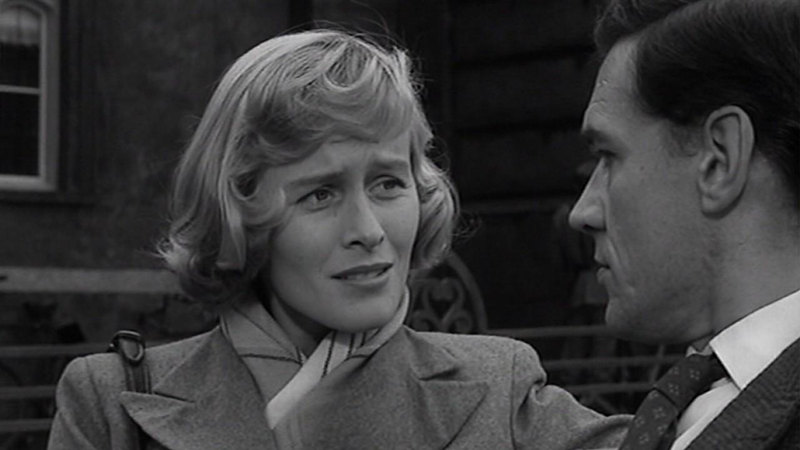Out of darkness comes a light. In the face of a tragedy so vast and cruel it shakes the soul to even consider, a group of musicians joined together to spark hope through performance.
“Defiant Requiem” tells the remarkable story of Terezin (Theresienstadt), the walled Czech city turned into a concentration camp by the Nazis during the Holocaust. Faced with overcrowding, starvation, disease and death, Jewish inmates turned to artistic expression to keep alive that spark of hope and life. Plays were written and performed, musical works were composed, and somehow a kind of artistic enclave of the most unexpected sort grew out of the soil of soul-crushing violence.
Beginning with secret rehearsals held in a damp cellar, musician Rafael Schachter built a choir of amateur performers, using music to stave off the death in life that comes with hopelessness. In 1943, he proposed a bold plan for his choir–to perform Verdi’s monumental Requiem Mass, with its Latin text of deliverance, remembrance and divine justice, as a defiant thrust at their captors.
Using only a single score he had brought with him when first transported to Terezin in 1941, he taught the choir the entire work (ca. 90 minutes of music) by rote, and the choir performed the work for the other prisoners fifteen times. This culminated in a final 1944 performance of the work for the Nazi leadership and a visiting Red Cross committee, guided there by the Nazi propaganda machine, who hoped to use the newly “renovated” city as a demonstration of their goodwill toward the Jews.
Doug Shultz’s film alternates between the historical story of Schachter and his Terezin musicians, and footage from a modern memorial concert held in 2012 in the very same warehouse where Schachter’s choir sang for the Red Cross. Narrated by Bebe Neuwirth, “Defiant Requiem” treats its subject with a deft, heartfelt mix of respect, sorrow, and a kind of mournful discretion.
Historical recreations, often so clumsy or obvious in other productions, are gratefully kept to a minimum, and are gracefule and well-filmed. There is use of ghostly line-drawing animation that evokes a keen sense of loss in their simple design. Camerawork is fluid and unobtrusive, letting the worn sidewalks and empty corridors of the still-standing buildings of Terezin speak for themselves. The narrative structure and pace is graceful, concise and continually engrossing. Elegant seems like an inappropriate word for a subject so grounded in a cruel reality, but the film is assembled with such rewarding clarity and precision I think it fits.
Along with archival footage and stills, there is the stunning, grotesquely unreal propaganda footage staged by the Nazis as part of the Red Cross visit—a soccer match, swing sets and rocking horses, children eating bread and butter who “had never seen butter until that day” (as one survivor says). The town had been “cleansed” of all those who did not fit the picture of health and freedom, sent on to the death camps before the Red Cross arrived. Even as I write this, I shake my head in baffled horror, as the Red Cross apparently bought the deceit, and the prisoners only took comfort in knowing they had spoken of vengeful wrath to the Nazi’s faces.
Survivors of Terezin, including several who sang with Schachter, speak with astonishing grace and strength about their experience, and what the act of singing meant to them in that place and time. In the choir for the 2012 performance are the sons of a survivor, singing to honor both their father the memory of Schachter. Conductor Murry Sidlin leads the modern performance by Prague musicians and singers from several Washington D.C. colleges, and the excerpts from that performance are vigorous and emotive. More moving still is the rehearsal taking place in the same cellar space where the original singers learned the work.
In the terrible darkness of the Holocaust, Rafael Schachter found a light. His unique blow against oppression emboldened his fellow prisoners to maintain hope where hope seemed buried, and “Defiant Requiem” is a fitting and deeply moving tribute to this gift.
Video:
”Defiant Requiem” is presented in widescreen format. The picture quality is fine overall, though there were occasional moments of blurring or fuzziness, especially in the wide shots of the full choir performance. Close-ups looked good throughout. There is an English SDH subtitle option in the set-up menu.
Audio:
The audio track is 5.1 Surround. Given the vigorous nature of some of the Verdi passages performed, the volume seems a little subdued in the concert footage. The more intimate settings are very satisfactory.
Extras:
None, which seems an opportunity overlooked given the nature of the subject and the quality of the film.
Parting thoughts:
Expertly edited and directed, “Defiant Requiem” is a powerful story of Holocaust resistance against Nazi oppression in the unusual form of the Verdi Requiem Mass.


